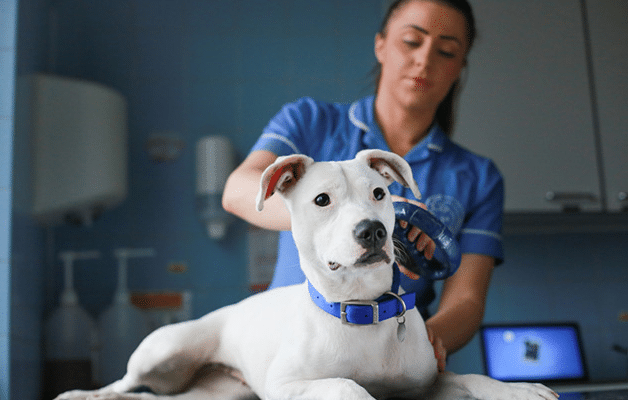What are the risks of microchipping your dog? That is a question that many people ask themselves when they hear about it for the first time. There has been a lot of controversy and discussion around the topic, with some people saying that it’s good to do and others saying that it’s bad. This article will discuss what microchips are and their potential risks.
Contents
What Are Dog Micro Chips?

A dog microchip is a small device that has information stored in it. The information can include the owner’s name and address or even medical records about the dog. It is implanted under your pet’s skin using what looks like an oversized syringe, but with a needle on one end instead of anything to draw liquid out. The process itself isn’t harmful or uncomfortable for your pet at all; they don’t feel any discomfort during the implantation process because no nerves are surrounding where it goes into their body! Once inserted correctly, this little chip will stay in place just fine unless you want to remove it later.
How Do Dog Microchips Work?

Dog microchips work by using radio frequency identification (RFID). When your pet gets scanned through one of these devices, called scanners or readers, you will be able to find out all kinds of information about them. Once scanned, it will show you their name and the owner’s contact information which is usually kept in a database. It can also reveal any medical conditions that your dog may have.
The Risks of Microchipping Your Dog

- Microchips Aren’t Proof of Ownership
- One risk that comes with microchipping your dog is that it isn’t proof of ownership. If you have a lost pet, whoever finds the pet can scan their chip and find out all kinds of information about you as well as your contact details. It also raises questions if they choose to take this further and try locating or contacting you because what will happen next? It may not always be possible for you to get back in touch with someone who has found one of your pets!
- Microchips Don’t Locate Your Lost Dog
- Microchips don’t actually tell you where your lost dog is. This can be a problem as it means you could lose them for good if this happens and no one ever finds out about their chip or scans them later on down the line! The best thing to do in these situations, then, would be to ensure that you have all kinds of ways of getting the word out there quickly so at least someone knows what has happened.
- Scanner Error
- It’s also worth noting that scanners can sometimes give off the wrong reading or have problems when it comes to picking up microchips properly. This is why you should always check everything yourself, too, if someone says they’ve found your dog.
- Microchips Don’t Store Information
- Microchips only keep an ID number; thus, to read it, someone must go to the registry where it’s recorded, and the dog owner’s contact information will be kept. This means there is no space for you to write down any important information about your pet, such as their medical conditions, which could become an issue if they fall ill and need immediate attention!
- There Are Multiple Microchip Database Registries
- Another problem with microchipping your dog is that there are multiple databases, and if you ever need to contact someone who has found them, it may take a very long time for you to get in touch. This can be frustrating because we all know how stressful it can be when our pets go missing! The best thing that anyone could do then would be look into which one will suit their individual needs the most so they don’t have any issues later on down the line when looking up information about their lost pet.
Conclusion
Microchips are great because they help you find your lost dogs, but there are also some risks associated with them. Also, it’s worth looking into the different types of microchips available because they all have their own benefits and drawbacks. If someone does not want their pet going through this process or if it’s just something that doesn’t appeal to them, then the best thing for all concerned would be trying out another form of identification instead!


